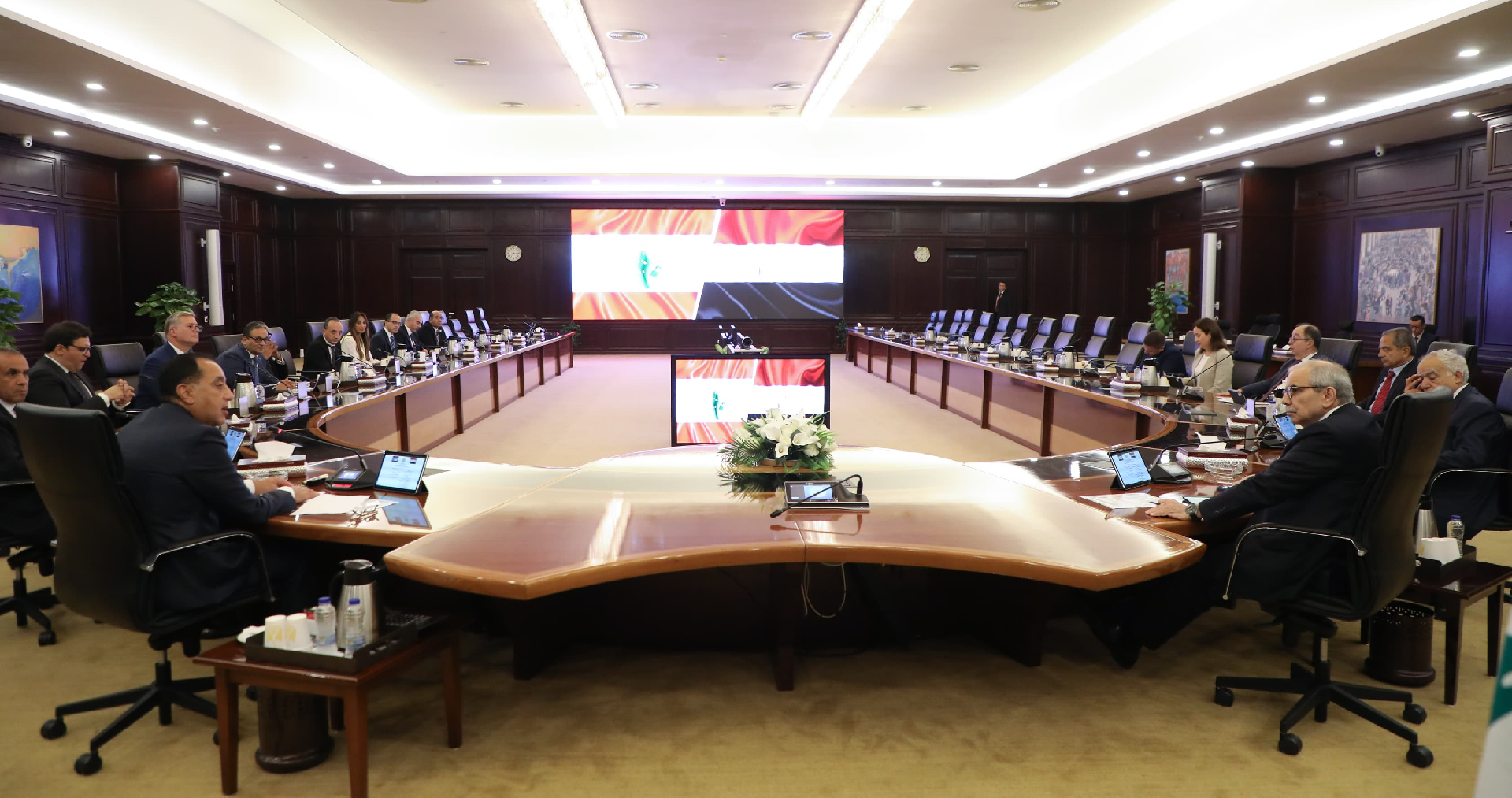
Lebanon and Egypt have agreed to strengthen their cooperation across a range of sectors, with Cairo expressing its readiness to support the reconstruction of areas devastated by the ongoing conflict between Hezbollah and Israel. Egypt also pledged assistance in reinforcing state authority throughout Lebanon’s national territory.
The decision was announced following an extended working meeting between Lebanese Prime Minister Nawaf Salam, on a 24-hour official visit to Cairo, and his Egyptian counterpart Mostafa Madbouly, attended by ministers and senior officials from both sides.
The Lebanese delegation included Energy Minister Joe Saddi, Culture Minister Ghassan Salameh. On the Egyptian side, the ministers of Foreign Affairs, Culture, and Petroleum took part in the talks.
Prime Minister Madbouly stated that "the Egyptian state, in coordination with private sector companies, is ready to contribute to the reconstruction process and to provide the necessary logistical support to the Lebanese army, enabling it to assert its authority across all Lebanese territory and borders."
For his part, Mr Salam remarked that "while the region is facing major challenges, it also presents promising opportunities which should be seized through effective Arab partnerships."
At the conclusion of the discussions, both parties agreed that the tenth session of the Egyptian-Lebanese Higher Joint Committee will be held in Cairo in early November. In the meantime, ministers from both countries are expected to finalize the preparatory work on their respective portfolios, paving the way for the signing of bilateral cooperation agreements.
The two sides also agreed to facilitate Lebanese exports to the Egyptian market by improving trade mechanisms.
In the field of energy, Egyptian officials reiterated their readiness to offer technical support and expertise to Lebanon in the sectors of gas and electricity. These discussions are set to continue at next week’s International Energy Conference in Milan, where both countries will be represented. Furthermore, Egypt’s Energy Minister has been formally invited by his Lebanese counterpart to visit Beirut.
Separately, Egyptian Foreign Minister Badr Abdel Aati underlined his country's commitment to supporting Lebanon diplomatically, putting an end to Israeli aggression, and preventing foreign interference in Lebanon’s domestic affairs. He called on the international community to "urgently convene a conference focused on Lebanon’s reconstruction and economic recovery," stressing that Lebanon’s stability is a top priority for both Egypt and the broader Arab world.
Meeting with Sissi
Earlier, Salam met with Egyptian President Abdel Fattah al-Sisi, who praised the steps taken by the Lebanese government in recent months to restore the proper functioning of state institutions, and assert its authority across Lebanese territory.
Sisi reiterated Egypt’s full support for Lebanon’s efforts to regain stability, pursue economic recovery and advance reconstruction.
He emphasized the need for Lebanon to continue working to safeguard its internal stability, territorial integrity and national unity.
Presidential spokesperson Ambassador Mohamed El-Shenawy noted that Egypt maintained intensive contacts with international and regional actors to ensure Lebanon’s stability. He underlined Cairo’s consistent calls for Israel’s complete withdrawal from southern Lebanon and for greater international support for Lebanese state institutions, particularly the army, to enable it to fulfill its national duties.
For his part, Prime Minister Salam expressed deep gratitude to President Sisi for Egypt’s steadfast support, describing it as a reflection of the historic ties binding the two nations and peoples.
Salam outlined his government’s priorities for the coming phase, including strengthening cooperation and integration with Arab countries, especially Egypt. He also highlighted ongoing preparations for the 10th session of the Egyptian-Lebanese Higher Joint Committee, to be held in Cairo later this year.
The talks also covered the latest developments in several regional issues.



Comments